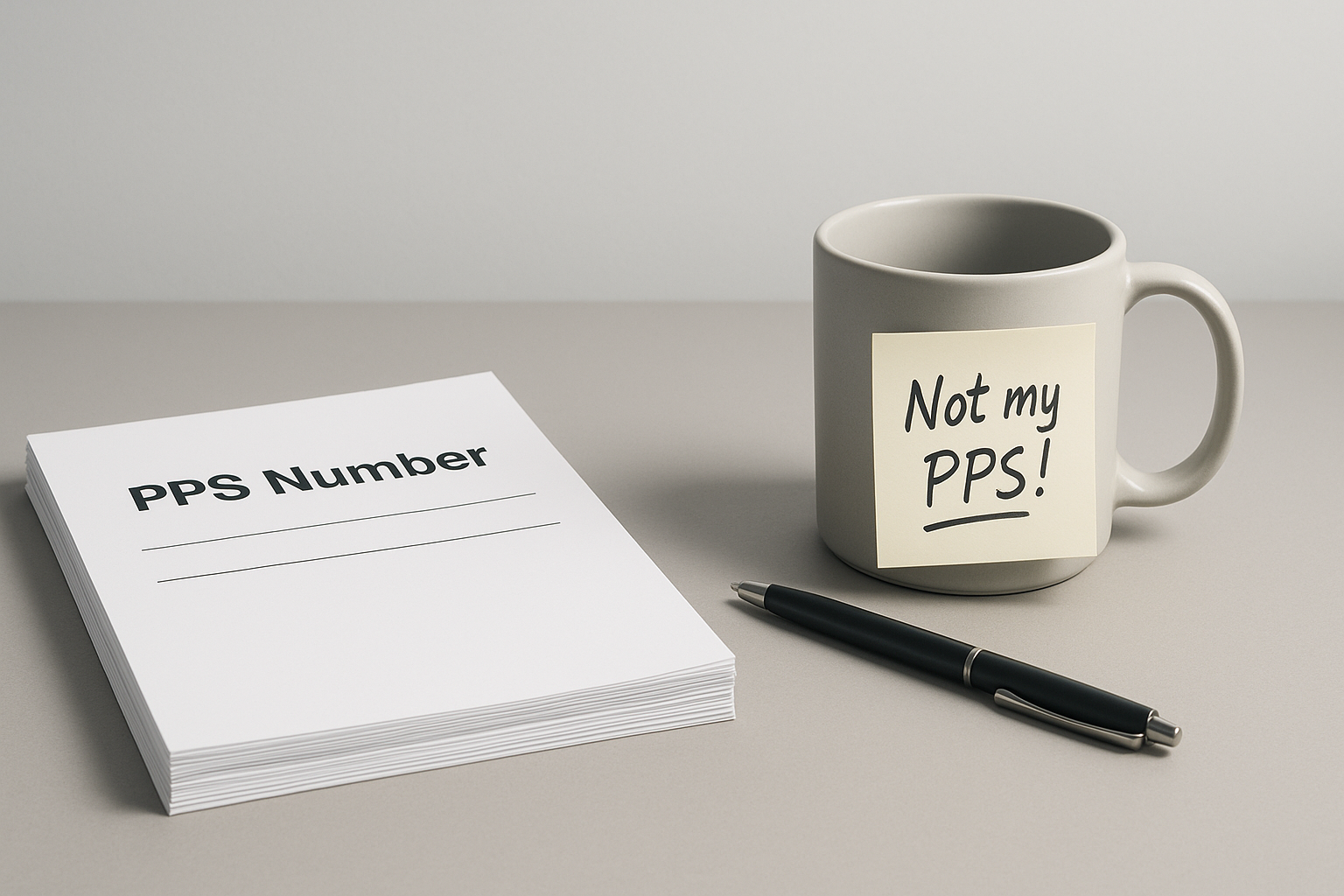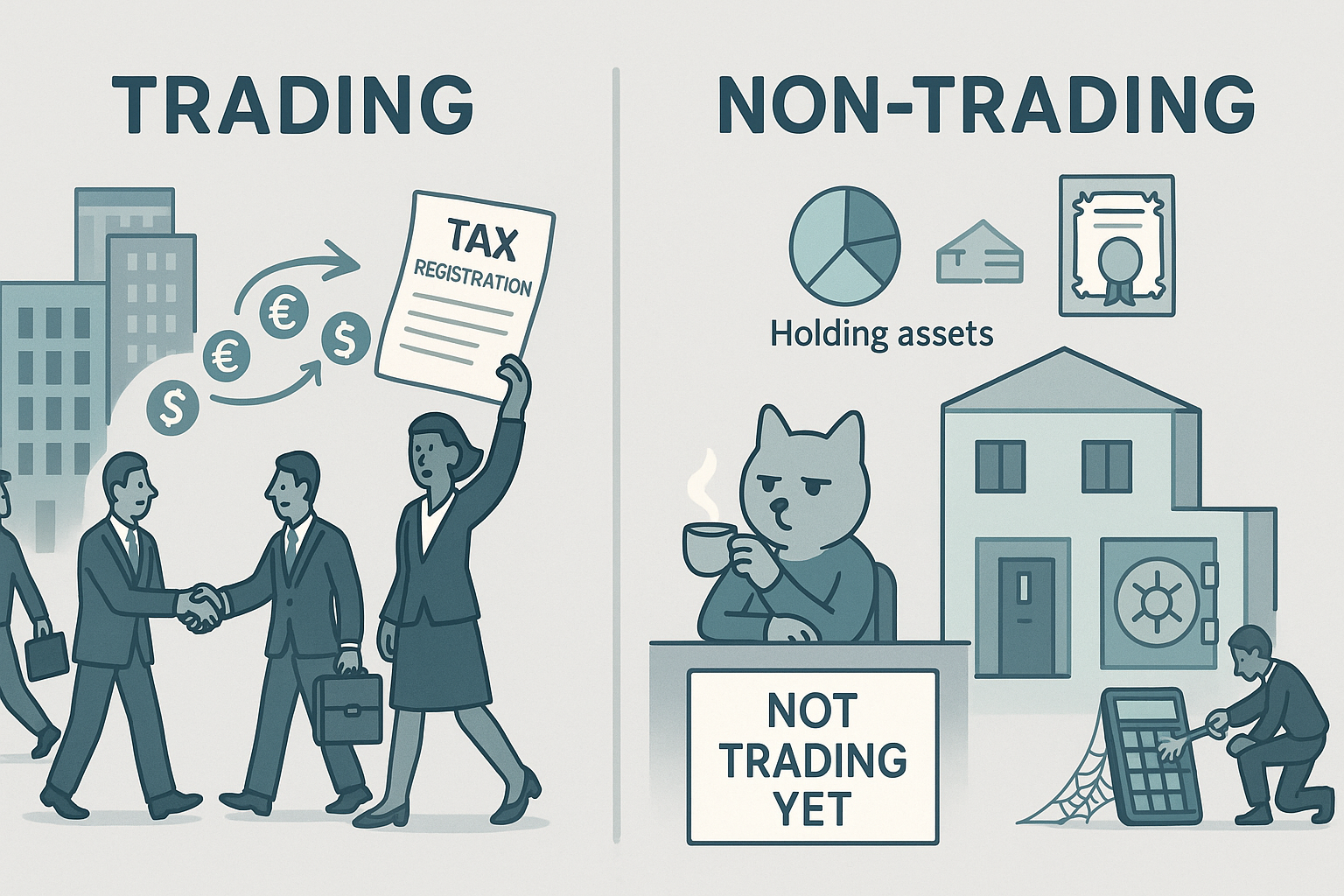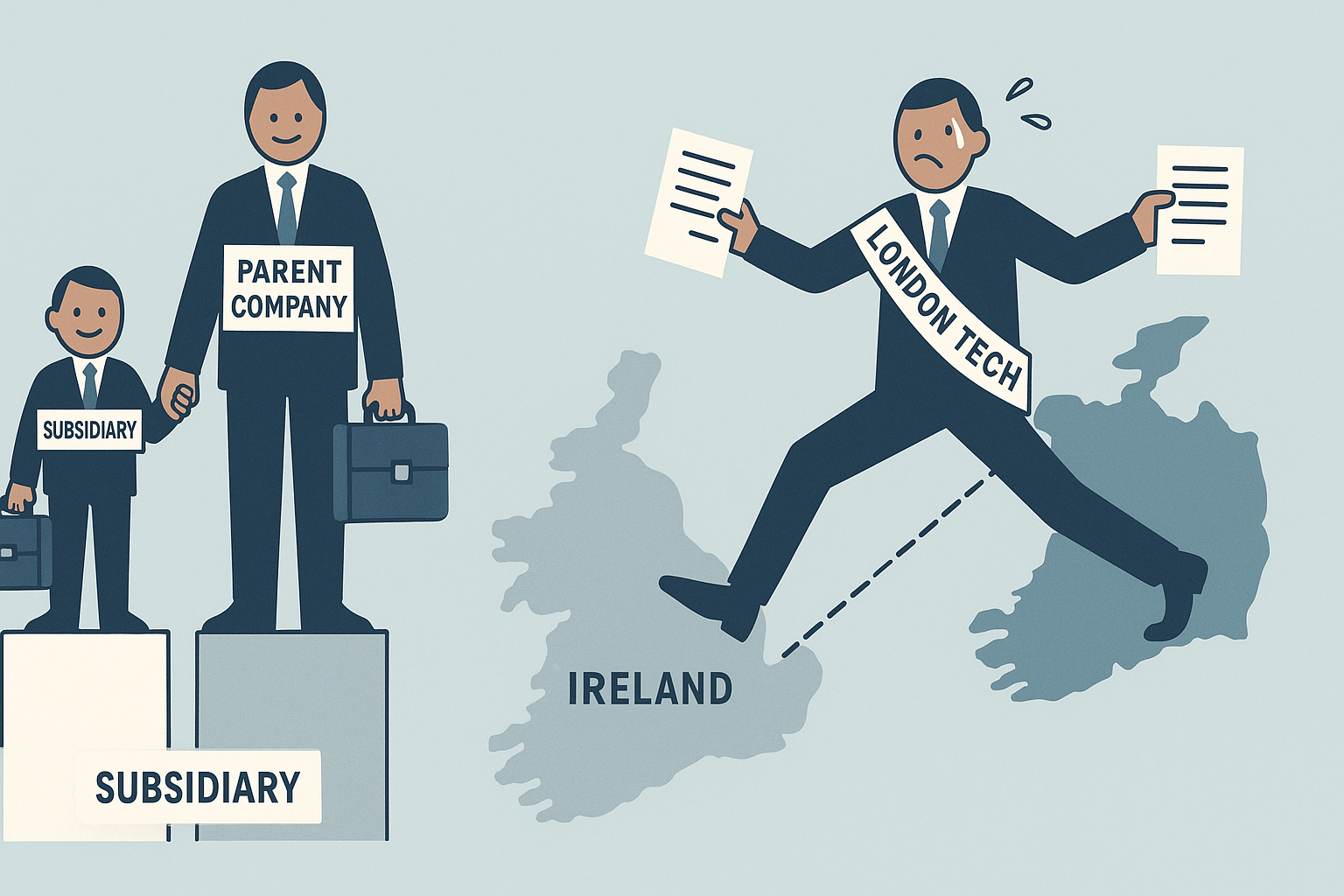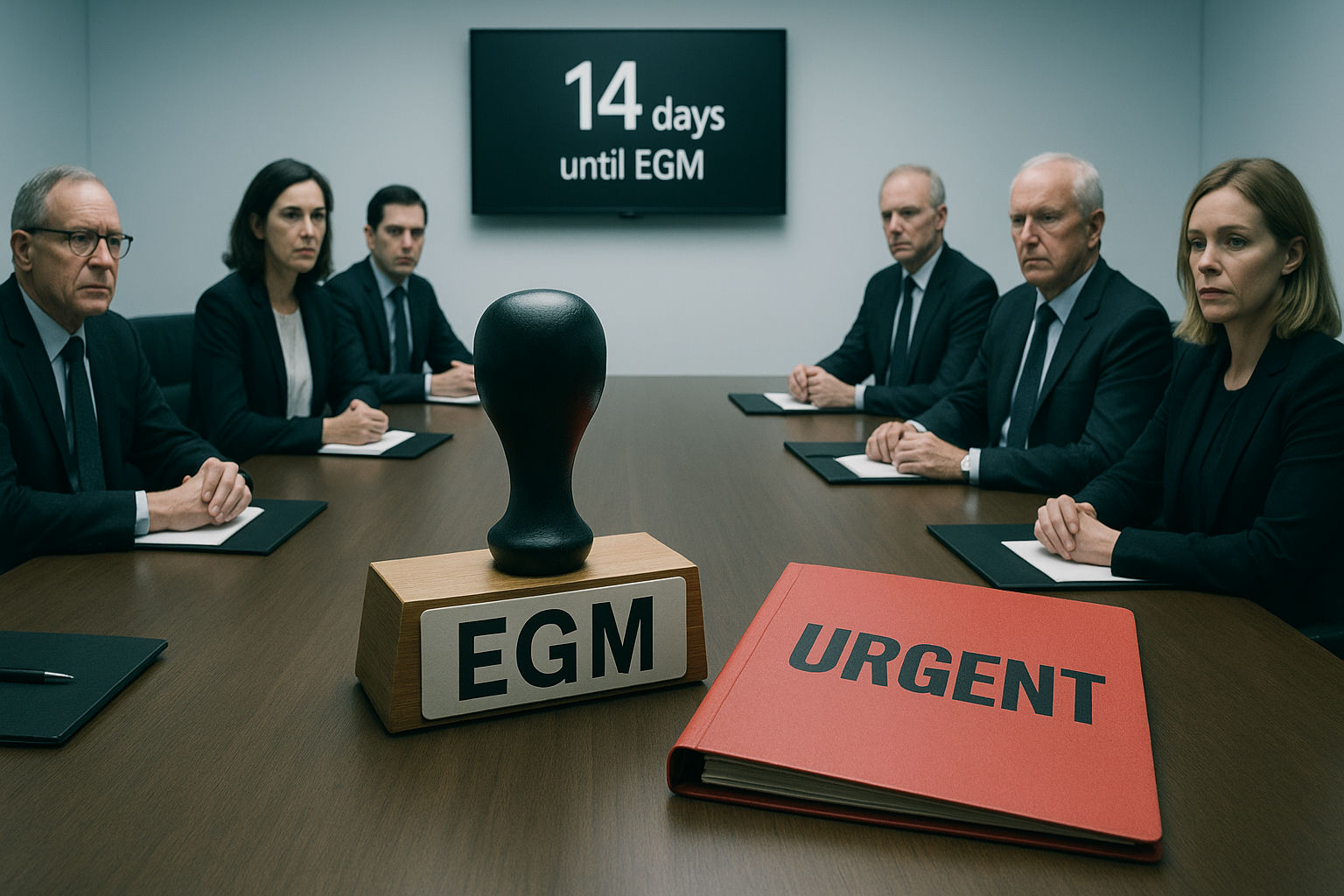This guide is written for aspiring entrepreneurs and small business owners in Ireland who want to establish their online presence in the e-commerce world.
It's specifically designed for those who are new to online business and need clear, actionable steps to navigate the Irish business landscape.
Key Takeaways
- Choosing the right business structure (sole trader vs limited company) is important for tax implications and liability protection when starting an online business in Ireland.
- Irish online businesses must comply with specific legal requirements including potential VAT registration, income tax obligations, and GDPR data protection regulations.
- Selecting the appropriate e-commerce platform and creating a user-friendly website significantly impacts your ability to convert visitors into customers.
- Government support through Local Enterprise Offices and the Trading Online Voucher Scheme provides valuable resources and funding to help establish and grow your online business.

Here at Open Forest we have all kinds of businesses on our platform, many of which are regular bricks & mortar stores - but we also have lots of businesses that operate 100% online. Some of those businesses are based in Ireland and many of them have no real ties to Ireland.
Maybe it makes sense for you to run your online business through an Irish company because you are an Irish local or maybe you are here for tax reasons, VAT reasons or you just need your first EU headquarters, this step-by-step guide will help you out with what you need to be thinking about so that you can choose the most suitable structure for your business.
What Business Structure Should I Choose When Starting a Business in Ireland?
Sole Trader vs Limited Company: Which Is Right for Your Online Business?
When setting up your online business, choosing the appropriate business structure is usually step number 1.
As a sole trader, you'll enjoy simplicity and direct control, but your personal assets remain at risk. Limited companies provide protection through separate legal entity status but require more paperwork.
Sole Traders
Generally speaking, sole traders will be reserved for local businesses that tend to be small in nature - photographers, artists, accountants sometimes. It involves registering with the Irish Revenue Commissioners as self-employed then you are subject to income tax on every euro the business makes.
This is generally not suitable for non-Irish residents.
Limited Companies
On the other hand, operating through a limited company will likely be more beneficial to you. This way, you can control how much you get taxed in a much more efficient manner. We go into depth about the benefits of using a limited company and how to do it here.
In summary, consider these factors when deciding:
- Business needs and growth potential
- Personal liability protection
- Tax implications and reporting requirements

How to Register Your Business with the Companies Registration Office (CRO)
To register your business with the Companies Registration Office, follow these steps:
- Choose a unique business name that best suits your business
- Open an account with the CRO
- Find and complete the required registration forms
- Submit documentation with the applicable fee
- Receive your CRO number upon successful registration
- Ensure all of the post-incorporation steps are completed (preparing your legal registers, share certificates etc)
If you want to try this step yourself, we have a guide to incorporating a company in Ireland free here (apart from the €50 government fee that the CRO will charge you - unavoidable). We strongly recommend not trying to do this process yourself.
Even if you can figure out the form yourself (which will likely take you 1-2 hours) because it is not at all user-friendly, you are unlikely to know how to ensure the company starts off compliant by meeting the obligations that come with it from the start.
Do yourself a favour and save yourself the headache - and we mean it when we say that it has the potential to be come a huge headache.
Understanding Tax Obligations for Different Business Structures in Ireland
Different business structures face distinct tax obligations. Sole traders pay income tax, PRSI and USC on profits. Limited companies pay corporation tax on company profits, while directors pay income tax on salaries.
Online businesses selling digital products face specific VAT rules when selling across EU borders. If you sell to a customer outside of the EU, then no VAT needs to be charged.
How Do I Create a Solid Business Plan for My Online Business?

Writing a Business Plan That Attracts Funding and Sets Clear Goals
A comprehensive business plan will help you clarify your vision and attract potential investors. Include clear objectives, marketing strategies, and operational details. Focus on how your online business journey will progress over the first three years.
Identifying Your Target Audience and Market Research Techniques
Understanding your target audience is essential for online business success. Research market needs, analyse competitors, and validate your concept before launching. This ensures your product or service meets actual customer demands in the Irish online marketplace.
Financial Planning and Forecasting for Your Irish Online Business
Accurate financial forecasting helps you prepare for future business needs. Create detailed projections covering:
- Financial Element
- Purpose
- Startup Costs
- Initial investment needed
- Revenue Projections
- Expected income over time
- Cash Flow Forecast
- Monthly inflow and outflow
- Break-even Analysis
- When profitability begins
What Are the Steps to Set Up Your Online Presence and E-Commerce Platform?

How to Register a Domain Name and Choose the Right Hosting Service
To establish a strong online presence:
- Register a domain name that reflects your business identity
- Select reliable hosting that offers scalability and security
- Ensure your site loads quickly and remains accessible
We are seeing a lot of companies opt for .io or .ai or .co domain names these days given how difficult it is to get a .com.
Selecting the Best E-Commerce Platform: Shopify, WooCommerce, and Others
E-commerce platforms like Shopify, WooCommerce, and others provide different features for online selling. Consider your technical skills, budget, and specific requirements when choosing a platform for your online store.
Creating a User-Friendly Website Design That Converts Visitors
A user-friendly website design increases conversion rates. Focus on intuitive navigation, mobile responsiveness, and clear calls to action. Your site should make it easy for customers to find and purchase your products.
Generally WordPress is used by a lot of people although we prefer Webflow for Open Forest. If you like the style of this blog, it is done with Webflow :)
What Legal Requirements Must I Meet When Starting an Online Business in Ireland?

Understanding VAT, Income Tax, and Corporation Tax for Online Businesses
It's easy to start a company in Ireland, but harder to keep it compliant. Online operators have to meet ongoing specific tax requirements. You'll need to pay tax according to your business structure, maintain proper records, and file returns on time.
Your choices are to outsource to an accountant, try to figure it all out yourself or else come onboard with Open Forest and let us take care of it all for you.
GDPR Compliance and Data Protection for Irish Online Businesses
Irish online businesses must comply with GDPR when collecting customer data. Implement proper consent mechanisms, privacy policies, and data security measures to protect customer information.
Do You Need an Accountant? Financial and Legal Support Resources
You used to, but now you can just use Open Forest instead. We take care of the legal, tax and accounting for new businesses all under one roof. Not only that, but we are the cheapest on the market - and that's because rather than hiring tonnes of services based staff and moving into fancy offices - we use our profits to create better technology to enable you as the customer to have a better experience.
How Can I Effectively Market My Online Business in Ireland?
SEO Strategies to Increase Your Visibility in Search Engines
Search engine optimisation (SEO) helps potential customers find your online business. Focus on relevant keywords, quality content, and technical optimisation to improve your search engine rankings.
Leveraging Social Media and Digital Marketing for Your Online Store
Platforms such as Facebook, Instagram, and Twitter offer powerful ways to connect with your target audience. Create engaging content that showcases your products and builds customer relationships.
Using Google Analytics to Track Performance and Optimise Your Business Online
Google Analytics provides valuable insights into visitor behaviour and campaign performance. Use this data to refine your marketing strategies and improve your online store's conversion rate.
What Support and Funding Options Are Available for Irish Online Businesses?

Grants and Support from the Local Enterprise Office
The Local Enterprise Office offers various supports for business owners, including mentoring, training, and financial assistance. Their experts can help you grow your business with targeted advice.
Trading Online Voucher Scheme and Other E-Commerce Incentives
The Trading Online Voucher Scheme provides grants up to €2,500 to help small businesses develop their e-commerce capabilities. This can offset website development costs and digital marketing expenses.
Networking and Business Communities for Online Business Owners in Ireland
Connecting with other business owners in the business world provides valuable insights and potential partnerships. Join industry groups, attend networking events, and participate in online forums to expand your business contacts.
Starting an online business in Ireland requires careful planning, but the digital landscape offers tremendous opportunities for growth. By following this guide and leveraging available supports, you can set up your online business for long-term success in the competitive e-commerce environment.

Stuart Connolly is a corporate barrister in Ireland and the UK since 2012.
He spent over a decade at Ireland's top law firms including Arthur Cox & William Fry.



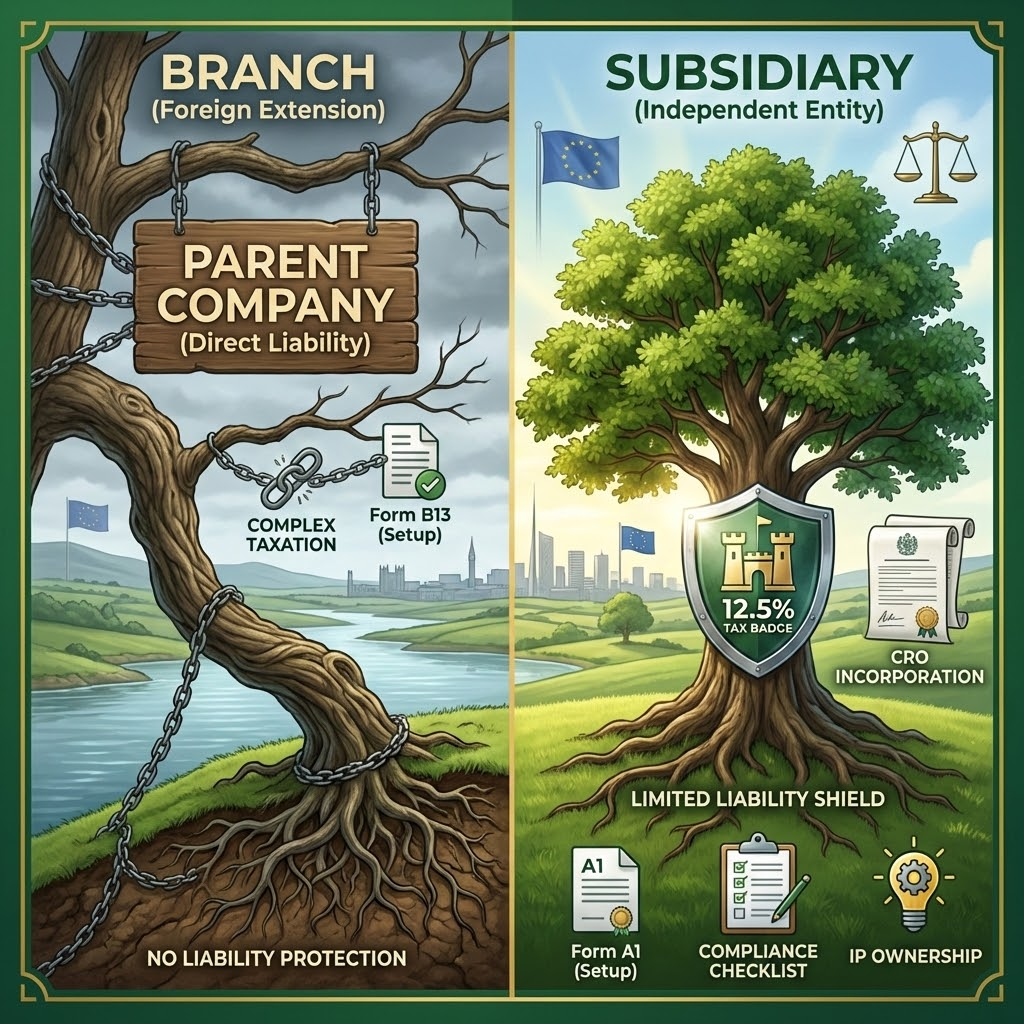
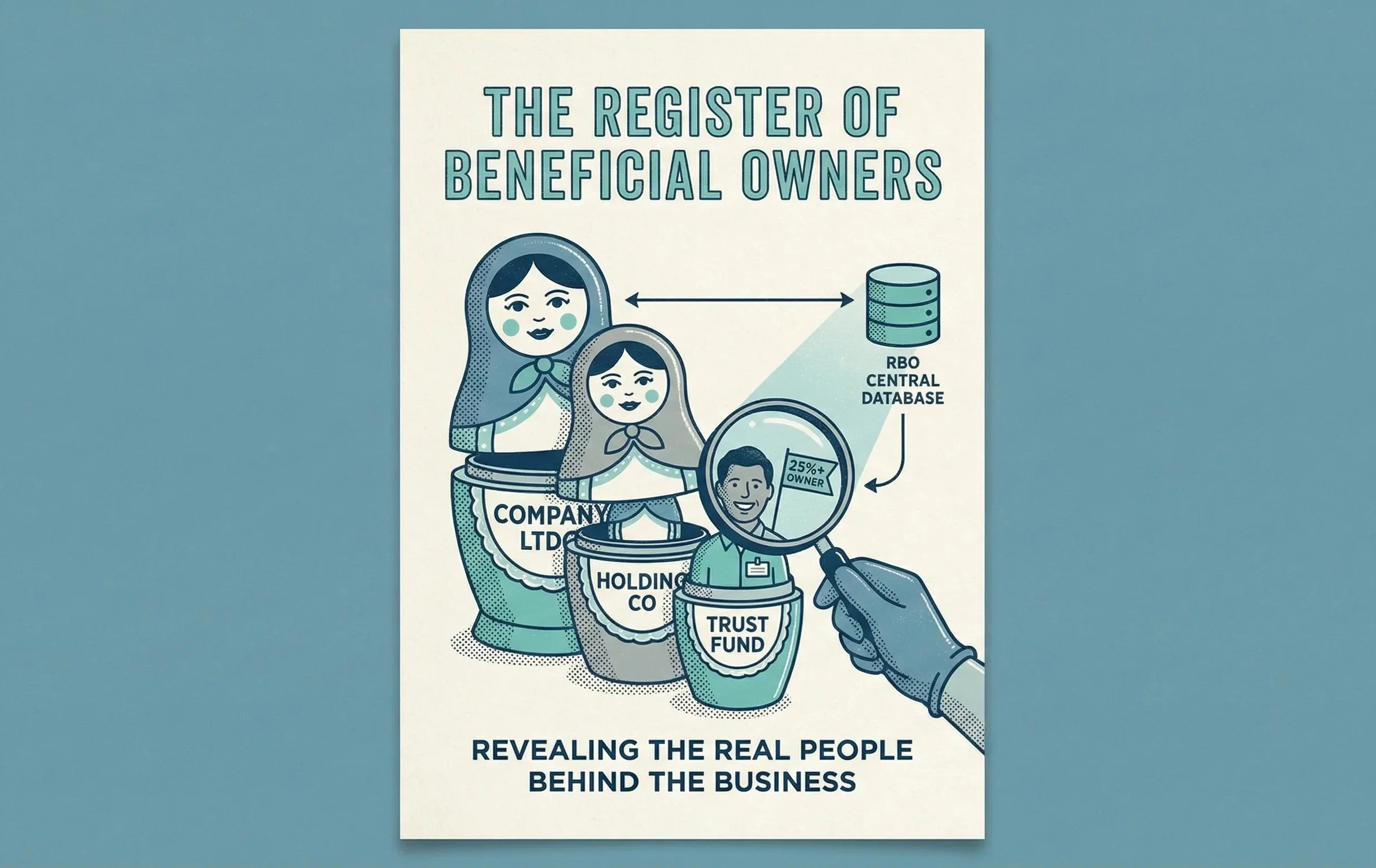
.webp)
.webp)
.webp)
